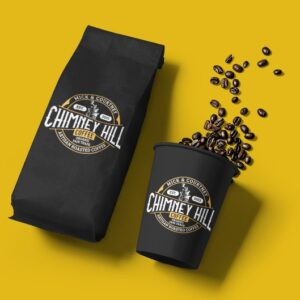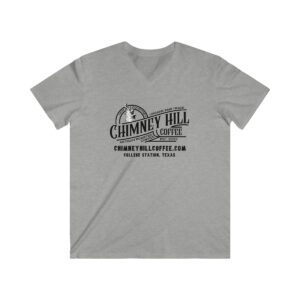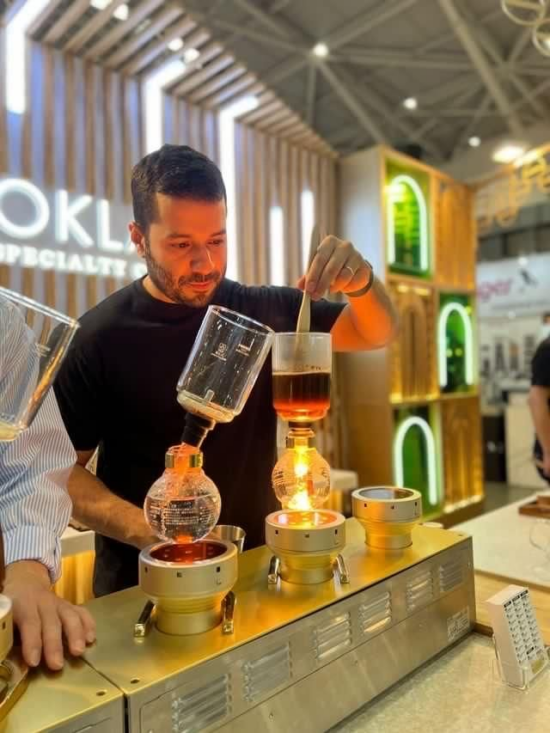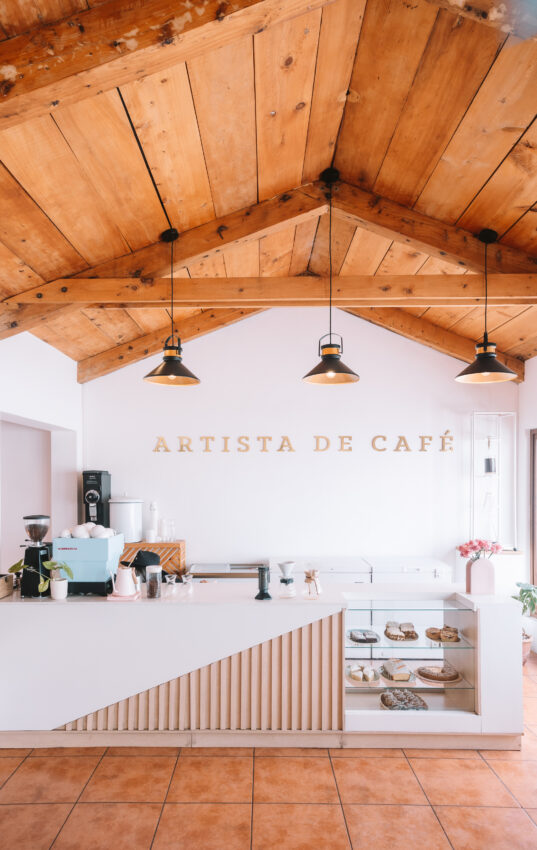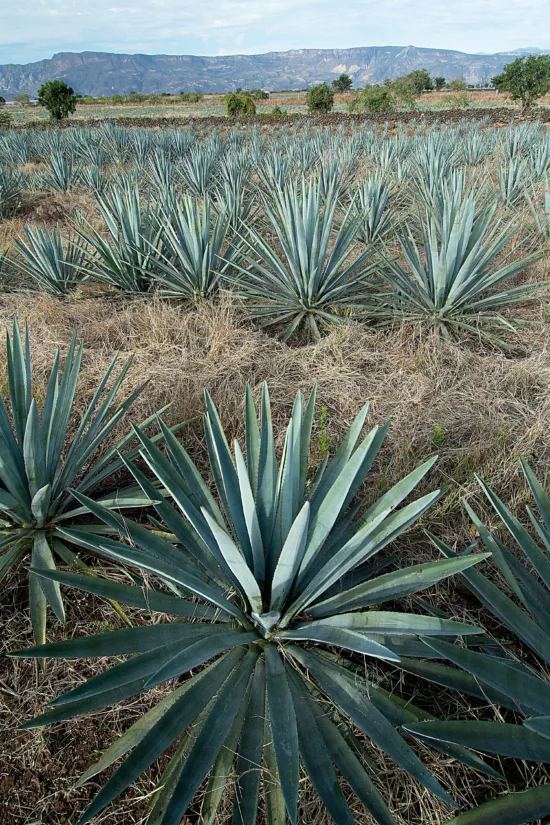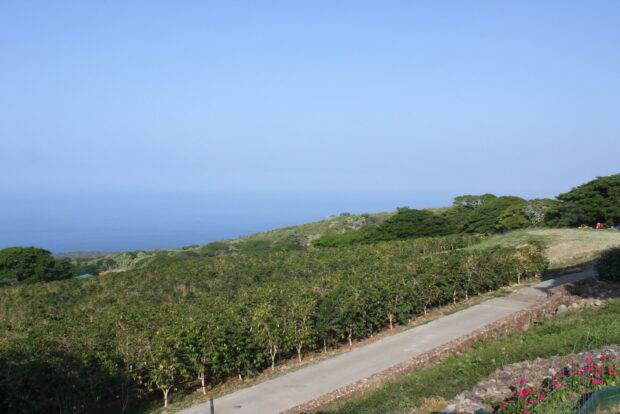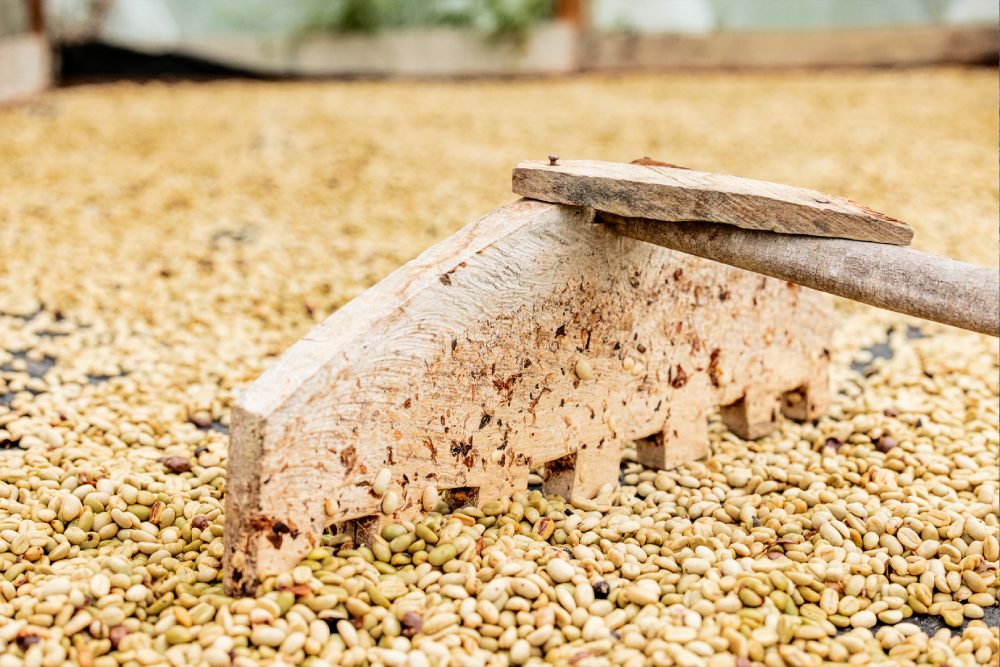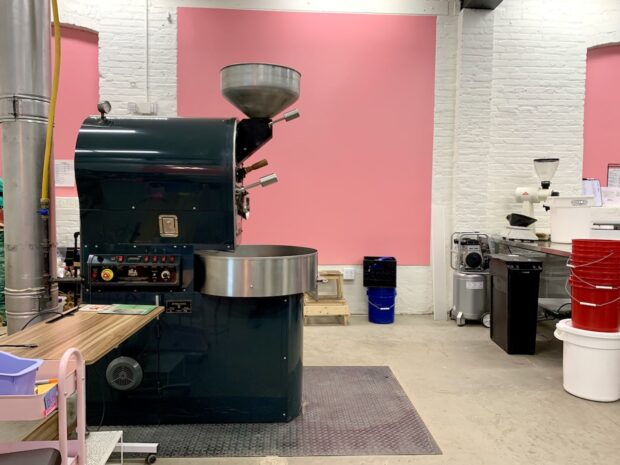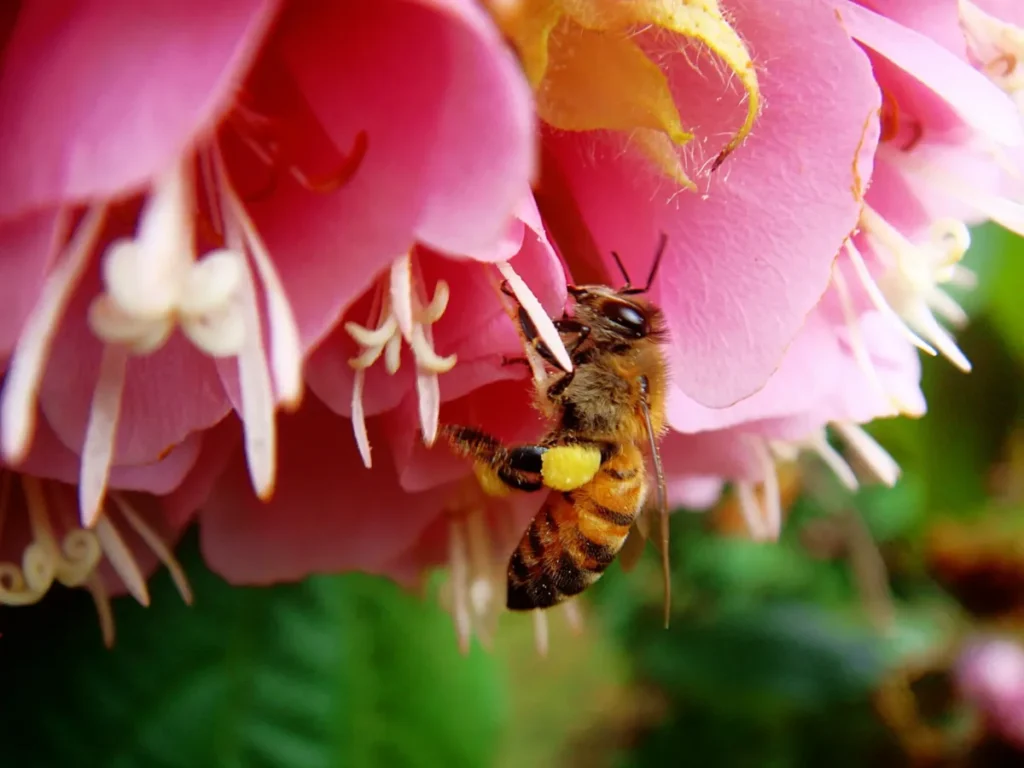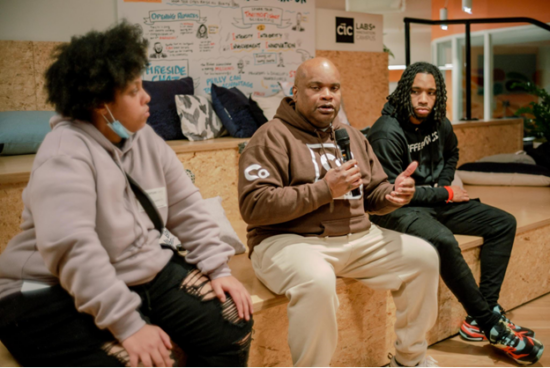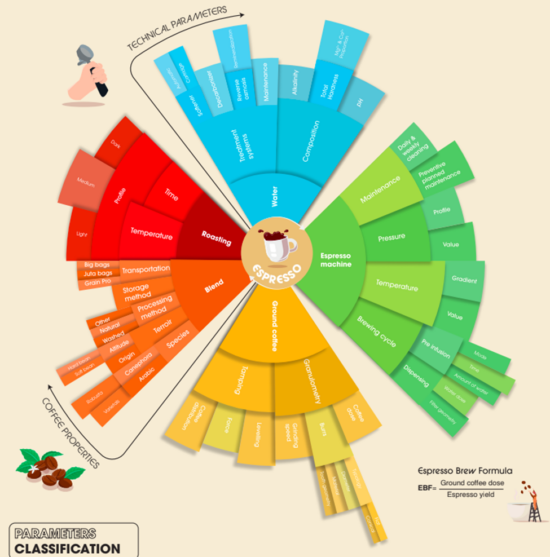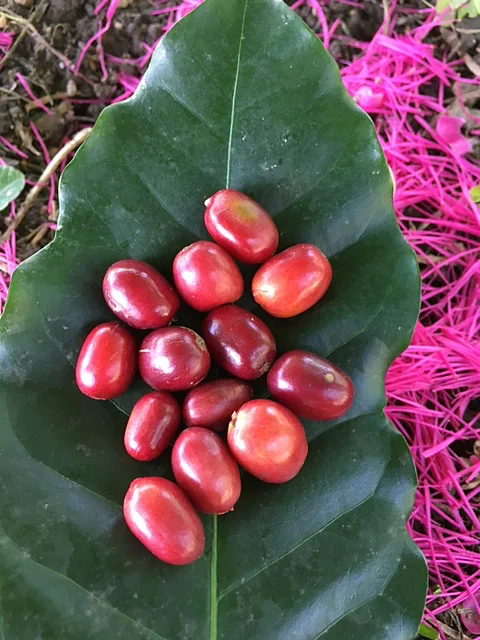The most affordable Keurig coffee maker is available exclusively at Walmart and comes at a sweet price of only $59.00. In this article, you’ll find out how good it really is, and also find additional information like how to clean it, or do you need a water...
Know Your Sweeteners: Agave: Part Two—Environmental Concerns
Know Your Sweeteners: Agave: Part Two—Environmental Concerns
Know Your Sweeteners: Agave: Part Two—Environmental Concerns
Know Your Sweeteners: Agave: Part Two—Environmental Concerns
Know Your Sweeteners: Agave: Part Two—Environmental Concerns
Know Your Sweeteners: Agave: Part Two—Environmental Concerns
Quick French Press Iced Coffee (No, It’s Not Cold Brew)
This is the absolute fastest way to make French press iced coffee. Just forget about cold brew concentrate – with this Quick French Press Iced Coffee Recipe you can have your iced coffee ready in 5 – 6 minutes. Who doesn’t like the French press?! It’s...
Here’s How to Change Keurig 2.0 Water Filter Easily
Not sure how to change Keurig 2.0 water filter? Here are step-by-step instructions that will help you do it quickly and easily. Keurig water filter should be changed every 2 months or 60 tank refills. The water filter is located inside the water tank, on the valve at...
The coffee rose for assessing Anaerobic coffee
I just came across this really neat tool to assess anaerobic coffees. I haven't used it for cupping yet. I'm not sure I will like it either because the idea of lowering the score of the coffee just because it tastes has some thyme flavors. At the same time I...
Three US Coffee Championship Events Are Heading To Rancho Cucamonga
This article is from the coffee website Sprudge at http://sprudge.com. This is the RSS feed version. The 2024 US Barista Championship, Brewers Cup, and Cup Tasters will take place March 15-17 at Klatch Coffee Roasters in Rancho Cucamonga, California.
The Origin Story of Turtle Island Coffee in Vancouver, B.C.
A new Indigenous-owned coffee company based in Vancouver, British Columbia, called Turtle Island Coffee has launched with the goal of exposing more people to high quality specialty coffee and Indigenous...
Get Ready for The Barista League’s 2024 Season
The Barista League has announced 12 competitions across four continents. BY J. MARIE CARLANBARISTA MAGAZINE ONLINE Photos courtesy of The Barista League When The Barista…
Get Ready for The Barista League’s 2024 Season
The Barista League has announced 12 competitions across four continents. BY J. MARIE CARLANBARISTA MAGAZINE ONLINE Photos courtesy of The Barista League When The Barista…
Get Ready for The Barista League’s 2024 Season
The Barista League has announced 12 competitions across four continents. BY J. MARIE CARLANBARISTA MAGAZINE ONLINE Photos courtesy of The Barista League When The Barista League announces new events, it’s worth paying attention! This year, the schedule will be...
Weekly Coffee News: EUDR and Africa + More Celebrity Coffee
Welcome to DCN’s Weekly Coffee News. Keep up with all the latest coffee industry stories and career opportunities by subscribing to DCN’s newsletter. Tell our editors about your news here. Report: Small-Scale Farmers in...
Do Higher Coffee Prices Mean More Money For Farmers? A Story From Sumatra Shows It’s Complicated
This article is from the coffee website Sprudge at http://sprudge.com. This is the RSS feed version. Since coffee costs more now than ever, do those coffee prices impact the amount of money earned by coffee farmers?
Coffee News Recap, 2 Feb: Applications open for Australia’s Richest Barista 2024, De’Longhi reports 4.6% revenue increase after La Marzocco move & other stories
Every Friday, Perfect Daily Grind rounds up the top coffee industry news from the previous week. Here are this week’s coffee news stories. The word of the week is: expansion. Mon, 29 Jan AeroPress launches limited-edition Clear Pink brewer. The coffee brewer is made...
Watch The 8 Best Coffee Videos Vying For Sprudgie Awards
This article is from the coffee website Sprudge at http://sprudge.com. This is the RSS feed version. The best coffee videos from 2023 featuring Cafe Imports, Aramse, Nguyen Coffee Supply, Wildly, Mirror Coffee Roasters, Alto Stories, Quek Shio, and Cafe Retiro.
Robusta is great and has untapped potential
I live in the US and my typical choice of coffee is lightly roasted Ethiopian pour overs. I generally love acidity and fruit flavors in my coffee. My experience with Robusta has often been poor. Very dark, roasty and maybe chocolatey. I participated in the Hoffman...
Design Details: Brewing Reinvented at ULA Café in Melbourne
Welcome to Design Details, an ongoing editorial feature in Daily Coffee News focused on individual examples of coffee shop architecture, interior design, packaging design or branding. If you are a coffee...
Robert Downey Jr.’s New “Happy Coffee” Is Really Depressing
This article is from the coffee website Sprudge at http://sprudge.com. This is the RSS feed version. Robert Downey Jr. and Craig Dubitsky team up for Happy Coffee.
Out Now: The February + March 2024 Issue of Barista Magazine!
In our new issue we feature Lisa Lawson from Glasgow, Scotland, take a look at the newest grinders, explore spring drink inspiration, see how more women are getting involved in coffee tech, and much more! BY SARAH ALLENBARISTA MAGAZINE We’re stoked to announce the...
The coffee industry’s biggest competition: The story of the World Barista Championship
Every year, the global coffee industry gears up for one of its most exciting and groundbreaking competitions: the World Barista Championship. For more than two decades, the WBC has been one of the biggest catalysts for change and innovation in specialty coffee, and...
The 2023 Specialty Coffee Transaction Guide Has Landed
The 2023 edition of the Specialty Coffee Transaction Guide (SCTG) guide went live today, providing actors throughout the coffee chain a data-driven tool for green coffee price discovery. The full...
Espro great until I needed replacement filter ☹️
I've had an Espro P7 for nearly four years after seeing glowing praise on this sub (to which I later contributed). Before I bought the P7 I looked at the replacement parts available and they seemed like a solid company in that they sold e.g. replacement filters...
New Bill Requires More Kona In Your Kona Coffee
This article is from the coffee website Sprudge at http://sprudge.com. This is the RSS feed version. Currently a coffee only need to be 10% Kona to be labeled as such.
What’s the best and worst part about owning and running a coffee shop?
I'm not interested in getting into it myself, as I have no experience in the service industry, no real appetite for risk and no desire to run a business in general. But sometimes I think about it and I wonder what's the most enjoyable thing about it and...
minimum dose size?
I use the Hario switch to brew my coffee and am trying to reduce my caffeine consumption. Hence I would like to brew smaller cups of coffee. I am currently using 10g of coffee with 160g of water. (1:16 Ratio) I am wondering if there is a minimum amount of coffee...
[CAFE OWNERS] Background before starting a shop?
I’ve worked in coffee for 6 yrs as a barista and shift supervisor and have passion for it. I’ve decided that I want to open my own place in the future and so I’ve been doing the research to make a business plan. Lately, however, I’ve begun to realize just how many...
Know Your Sweeteners: Agave: Part Two—Environmental Concerns
Agave has become an increasingly popular sweetener in the coffee industry. But is it as environmentally friendly as people claim it to be?
BY EMILY JOY MENESES
BARISTA MAGAZINE ONLINE
Featured photo sourced via Pixabay
In recent years, you may have noticed an increase in demand for “alternative sweeteners” like agave. While today, the nectar serves as a go-to for vegans and the health-conscious, agave has been an integral part of indigenous American traditions for hundreds of years—something that we shed light on in part one of this article. Today, in part two, we’re diving into the environmental discussions surrounding the ingredient, with the hopes of uncovering whether the rise in demand is sustainable or not.
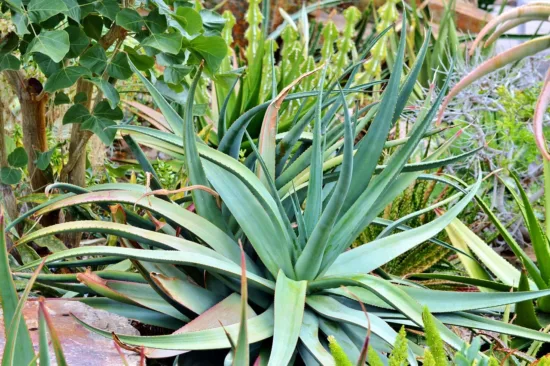

Beyond the Surface
Today, many consumers tout agave as an “environmentally friendly” ingredient, pointing to the fact that the plant requires little watering. Many also cite it as a “harm-free” sweetener compared to honey, as no animals are involved in its production. However, a closer look shows that there are some concerns when it comes to agave farming.
One of the most important things to consider is over-harvesting: It takes several years for agave plants to mature, and harvesting too many too quickly to meet consumer demands can cause a threat to the plant’s long-term viability. To keep up with the market, many farmers have turned to faster-growing varieties, but this may eventually lead to a “monoculture” of agave—a threat to biodiversity.
While it’s true that agave is a drought-friendly plant, these other points are important to consider when discussing the sustainability of the agave industry.
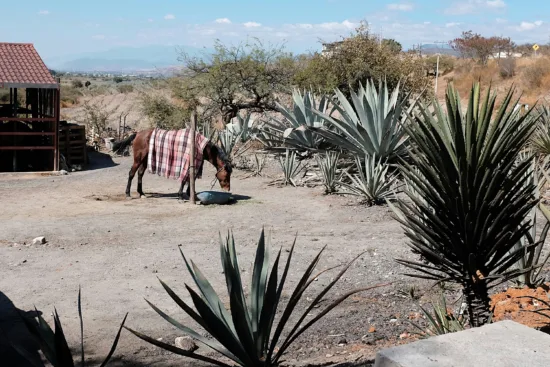

Responding to Concerns—Sustainable Farming Methods
Amidst environmental concerns, sustainability-minded agave farmers are responding in a variety of ways. Some regenerative agricultural practices include crop rotation, cover cropping, and minimal tillage, all of which help promote soil health, preserve biodiversity, and enhance the resilience of agave crops. Farmers are also increasingly turning to circular agricultural practices, often using recycled water to nourish their plants.
This article by Annelise Jolley cites how brands like the cooperatively owned mezcal company Banhez are combating deforestation in the agave industry by paying farmers to leave portions of their fields unharvested, helping to prevent over-harvesting.
By better understanding the agave plant’s natural life cycle and incentivizing sustainable farming methods, agave producers can continue to cultivate agave while preserving ecological balance in the surrounding environment.
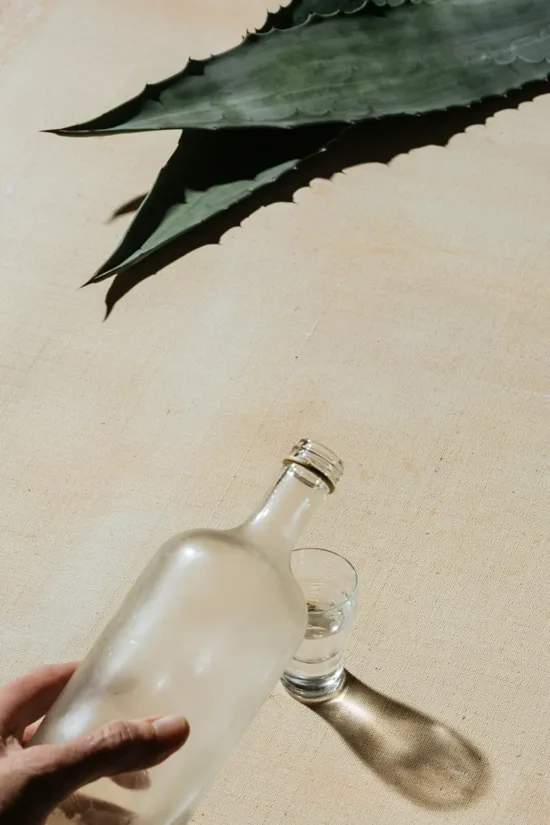

What We Can Do
As consumers and business owners, we can choose to prioritize organic and fair-trade products, while staying educated on the environmental pros and cons of each ingredient we choose to work with. While there’s no “right” answer, using our ingredients with awareness is a positive step toward creating a more environmentally conscious industry.
In future installments of “Know Your Sweeteners” we’ll discuss other sweetener options and dive into their unique flavor profiles, health benefits, and environmental effects. Stay tuned for more.
ABOUT THE AUTHOR
Emily Joy Meneses (she/they) is a writer and musician based in Los Angeles. Her hobbies include foraging, cortados, vintage synths, and connecting with her Filipino roots through music, art, food, and beverage.
Subscribe and More!
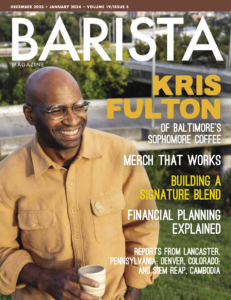

Out now: It’s the December 2023 + January 2024 issue! Read it for free with our digital edition. And for more than three years’ worth of issues, visit our digital edition archives here.
You can order a hard copy of the magazine through our online store here, or start a subscription for one year or two.
The post Know Your Sweeteners: Agave: Part Two—Environmental Concerns appeared first on Barista Magazine Online.

